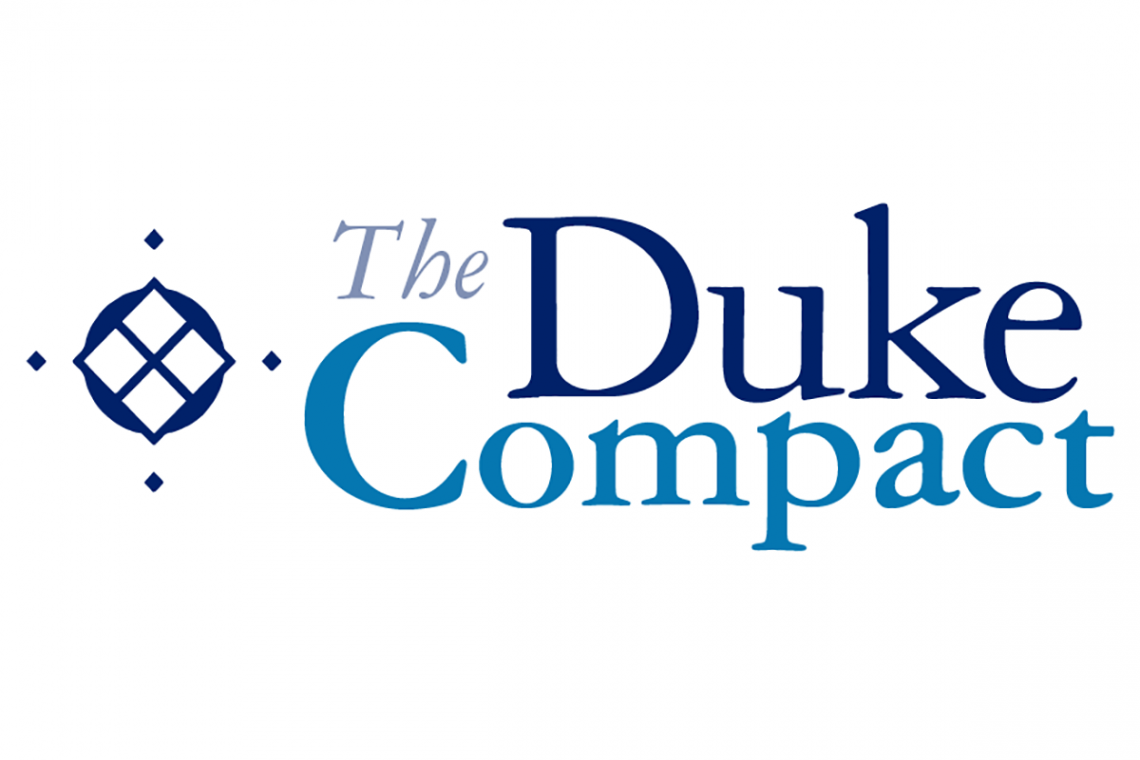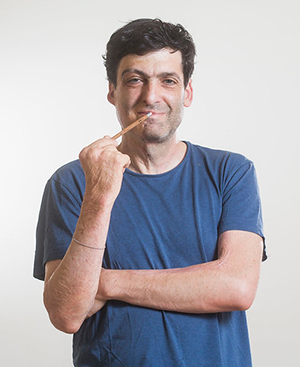Why Sign The Duke Compact?
Duke experts answer the most common questions asked by the Duke community

Duke started this semester with a campus safety plan that relies heavily on wearing masks, washing hands, physical distancing, robust testing and signing the Duke Compact.
The first four have a lot of science behind them. But what about signing the Duke Compact? What good does that do?
It turns out even the Duke Compact has research backing it. Let Dan Ariely explain.
 The university professor and behavioral economist has made a career of studying how incentives (and disincentives) affect human behavior. He sees several reasons shown in research as to why the Duke Compact may make the campus safer.
The university professor and behavioral economist has made a career of studying how incentives (and disincentives) affect human behavior. He sees several reasons shown in research as to why the Duke Compact may make the campus safer.
“One, when we sign something, we read it more carefully,” Ariely says. “Signing makes us more committed to following it. In pre-Corona times, when we agreed to something, we shook hands. When you shake hands, you take the agreement more seriously. The same with signing.
“Finally, we’ve shown that signing a statement gets people to be more honest and they adhere more to what they sign.”
Now, there’s a caveat, Ariely says. Signing a document doesn’t magically mean our misbehaviors go away.
“But will it help? Absolutely. In fact, we should sign it again time to time to refresh our memory and commitment. This would remind us that there are a few important standards of behavior that we should all take to reduce the risk of COVID-19. After all, COVID-19 isn’t just about us, it’s also about helping others and helping the entire community.”
The Duke Compact was distributed to 45,000 university faculty, staff and students. As of Aug. 18, about 95 percent of undergraduate students have signed it, and 80 percent of graduate and professional students have signed. Nearly 19,000 faculty and staff have signed the compact, including 1,100 faculty who committed to teach in-person classes this semester. Overall, about 34,000 people – around 75 percent -- have signed the Compact. Of the remaining 11,000, many of these are seasonal staff, retirees and other affiliates who are not routinely on campus.
Leigh Goller, Chief Audit, Risk and Compliance Officer at Duke, has received hundreds of questions university from community members about the Compact. Some express resistance, but most simply aren’t sure about certain points. The Compact’s website provides answers for many frequently asked questions.
Here are some of the most common questions and concerns raised about the Compact.
 What happens if I don’t sign the Compact?
What happens if I don’t sign the Compact?
Signing the Duke Compact is a condition of maintaining access privileges for university facilities on and off campus. Employees who choose not to sign can continue to work remotely, Goller said; however, if it’s not possible to do the job remotely, it may affect employment status.
“The goal of the Compact is to help our community stay healthy and reminds us of our responsibility to keep those around us healthy – classmates, colleagues, family and friends,” Goller said. “It’s meant to inspire us to make a personal commitment to do the things we need to do to support a wider Duke community. This is to ensure everyone working and learning in the university setting has affirmed their commitment to practice the safety principles that will enable us to be in close proximity with one another. Part of that is understanding that everything you do when you are not on campus, you carry back with you if you come to campus.”
I’m in the School of Medicine. Why do I have to sign?
The Compact follows employment status: It is required of university employees but doesn’t apply to the Duke University Health System, which has its own guidelines for pandemic safety. This has created some confusion for faculty and staff in the two health schools -- medicine and nursing -- because although they are university employees, many spend much of their time in working with health system colleagues.
University leadership extended the Compact to them because they wanted the entire university community committing to the same set of behaviors, Goller said. “This is an experiment on how to have a trusted and common set of behaviors among all people on campus,” she said. “All faculty, staff and students coming to campus are riding the same buses and walking the same sidewalks and occupying facilities together.”
 Is Duke restricting my personal travel and life?
Is Duke restricting my personal travel and life?
We’ve had questions as to whether an employee can go visit family members or attend a wedding,” Goller said. Duke has restricted non-essential university-funded travel. “Duke is not telling you can’t take a personal trip; that’s your call.”
If you do travel or attend an event, you should monitor your symptoms and use the SymMon app to help decide whether you need to come into campus. If you are traveling to a hot spot, “we may ask you to follow Employee Health or Student Health guidance to stay at home for a few days before returning to campus,” Goller said.
What happens if I attend a “large gathering”?
The state of North Carolina and City of Durham currently restricts most gatherings of more than 25 people, and Duke restricts most gatherings of more than 10.
Local and state ordinances differ. based on local conditions. As a porous campus, Goller said, Duke officials hope that everyone will be attentive to that guidance while off campus and to Duke's guidance while on it. As with personal travel, Duke may ask you to follow Employee Health or Student Health guidance to stay at home for a few days before returning to campus.
Why is Duke requiring the flu vaccination?
The university will accept certain religious and medical exemptions for taking the flu vaccine. But outside of those cases, getting a flu vaccine is part of the behaviors that will go a long way to maintaining community health this winter.
Dr. Cameron Wolfe, one of Duke’s leading experts on infectious diseases, said no patient wants to get a double hit from the flu and from COVID. And unfortunately, it looks like both are going to be around this winter.
“We need to do all we can to not let the two co-circulate,” Wolfe said. “The challenges of co-circulation of influenza and COVID-19 on a campus are not insignificant -- for many, the illness is similar. It would be clinically indistinguishable for me to separate them in front of a patient. Yet the management is quite different especially for people who develop severe illness. The extra PPE; the extra resource utilization; additional testing; challenges with quarantine requirements when you're not sure which virus you're dealing with.
“I'm hopeful the masking and social distancing, and de-densifying that's occurred throughout the university will also help reduce flu. But we have an instrument, in a flu vaccine, that is recommended for almost every adult. This is the year, more than ever, if we're going to go to great lengths to keep our campus virus free, that means both.”
That’s what Duke President Vincent Price and other university leaders had in mind when the Compact was presented. It was written following extensive collaboration with faculty, staff and students across the university, whose advice significantly shaped the final version. What didn’t change was a core message about our responsibility to community health.
“When it comes to COVID, we can behave in a way that contributes to the health and safety of others or we can behave in a way that frankly endangers others,” Price said during a Leadership Conversation this past week. “We needed to articulate that in a clear way, and the Duke Compact came out of that need. It is a collective statement about the basic things that each of us have to do to serve and support each other.”